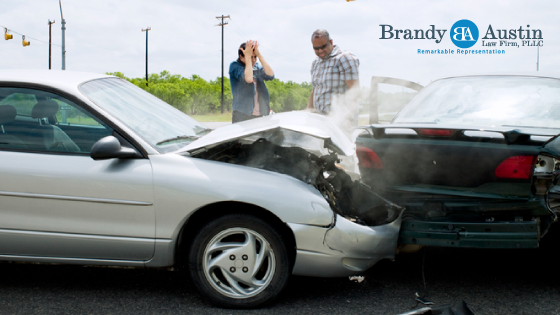The massive increase of ride-sharing companies such as Uber or Lyft has opened the door for new jobs and financial resources for many people. Ride-sharing has also opened the door for transportation to those that otherwise would not be able to get around their city. Ride-sharing is used for a night out on the town, to go buy groceries, and even to get to a doctor’s appointment. While ride-sharing provides many opportunities for people and a new form of assistance there are other negatives to it. This latest increase in ride-share companies also means there is a new threat on the roads. Previously you could call taxi services, or you would have to rely on a family member or friend. Now, you have multiple companies offering transportation options.
What happens if you get hurt while riding in your Uber or Lyft? Who will pay for your injuries, and can you even sue? Potentially, the responsibility to cover financial costs could come from the insurance company of the at-fault driver—whether it’s the ride-sharing company’s driver or another driver involved in the accident who caused the crash—however, ride-sharing companies tend to hold their own insurance policies. There are a lot of variables to consider when it comes to motor vehicle accidents and ride-sharing.
Whose Insurance Applies?
Ride-share companies require their drivers to carry insurance coverage in the event of an accident, and they must keep that insurance current. Typically it is the driver’s insurance that will pay for damages; however, the ride-share company carries their own insurance for additional coverage and at times this might kick in.
Sometimes the driver’s car insurance coverage will apply to your injuries. If the driver has a commercial policy or a personal car insurance policy it might include a special provision about providing insurance coverage while engaged as a ride-sharing driver. Not all Uber and Lyft drivers have a commercial or personal car insurance policy that will cover your injuries. Sometimes their personal car insurance policy might have a “business use exception” that won’t cover damages and injuries that occur while the insured is acting as a for-profit driver.
The good news is that most ride-sharing company’s carry third party liability insurance coverage, which can pay up to a certain amount for personal injuries and property damage per accident. The only negative is the driver’s own insurance must be exhausted before this third party coverage will kick in.
If the driver isn’t at fault, you might seek to recover from the at-fault driver, via a personal injury lawsuit. Your attorney could then fight on your behalf to prove the other driver was at fault and that their insurance company needs to pay for your injuries as well as any other property damages you might have. Let’s hope it isn’t your ride-share driver that is at fault in the first place.
If the at-fault driver does not have insurance or their insurance doesn’t cover the full extent of damage, the ride-sharing company might have uninsured/underinsured (UM/UIM) insurance coverage. This coverage typically fills in the gaps when the other driver does not have insurance and will pay for a certain amount of damages.
Always be safe
When you get in the car with someone else driving, you are hoping they are covered by insurance and that they are a good driver. There are a lot of factors that come into play. Always wear your seatbelt and watch your surroundings. This isn’t to say never use a ride-sharing company but be aware that just like anyone else, the driver is a human and can make mistakes. Ride-share companies always take measures to protect those that might get in the vehicle with their drivers, such as pulling driving records and background checks, but this doesn’t mean that an accident won’t happen. While being a backseat driver is annoying to many people some times it helps to be alert.
If you ever find yourself in an accident while riding with a ride-sharing company, call a personal injury attorney to see if they are familiar with these types of cases. It gets a little tricky when the drivers are not considered employees, so it is always good to have someone on your side to help work through the facts. Insurance companies can be difficult to work with at times especially if you don’t know the law or how these situations work.




